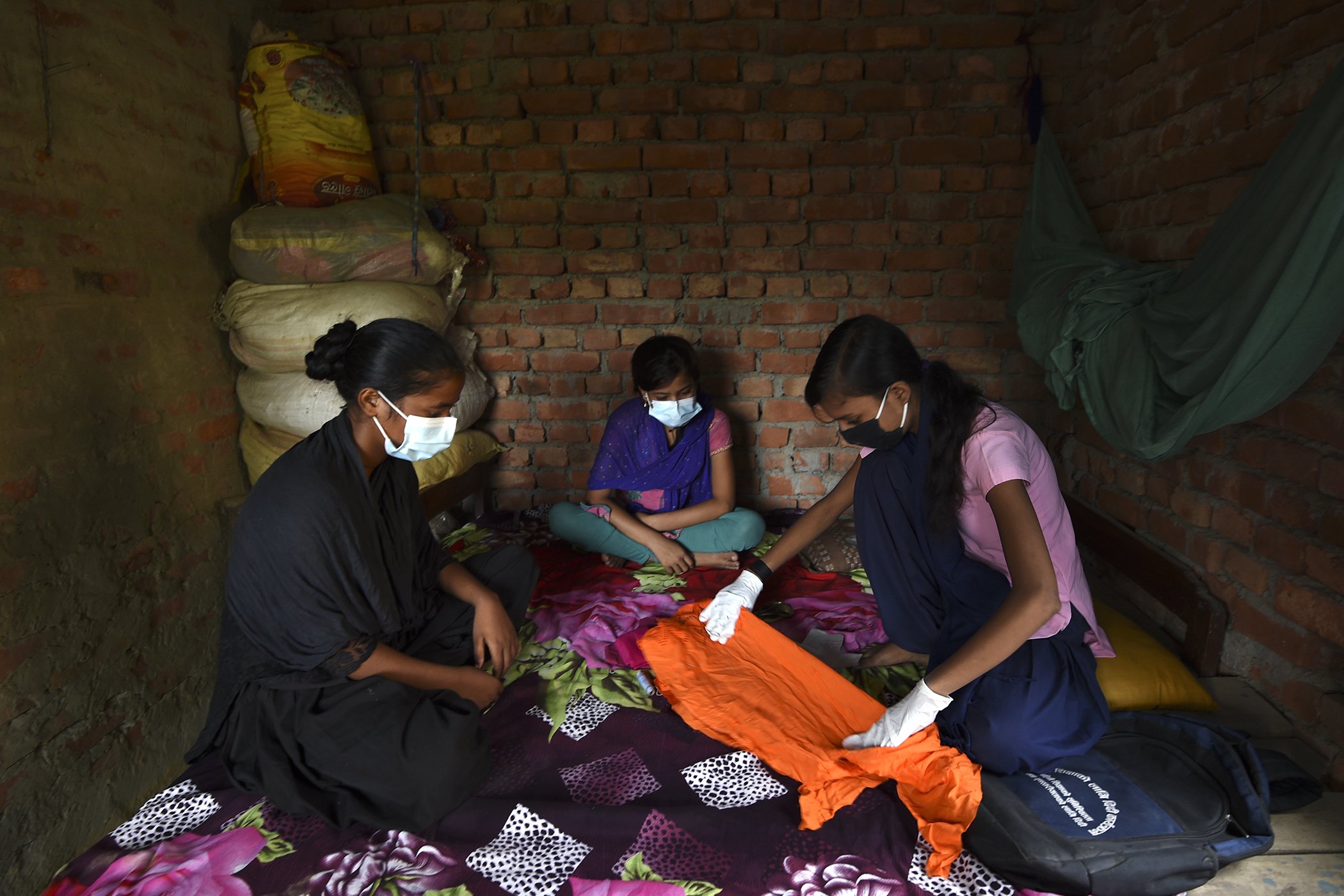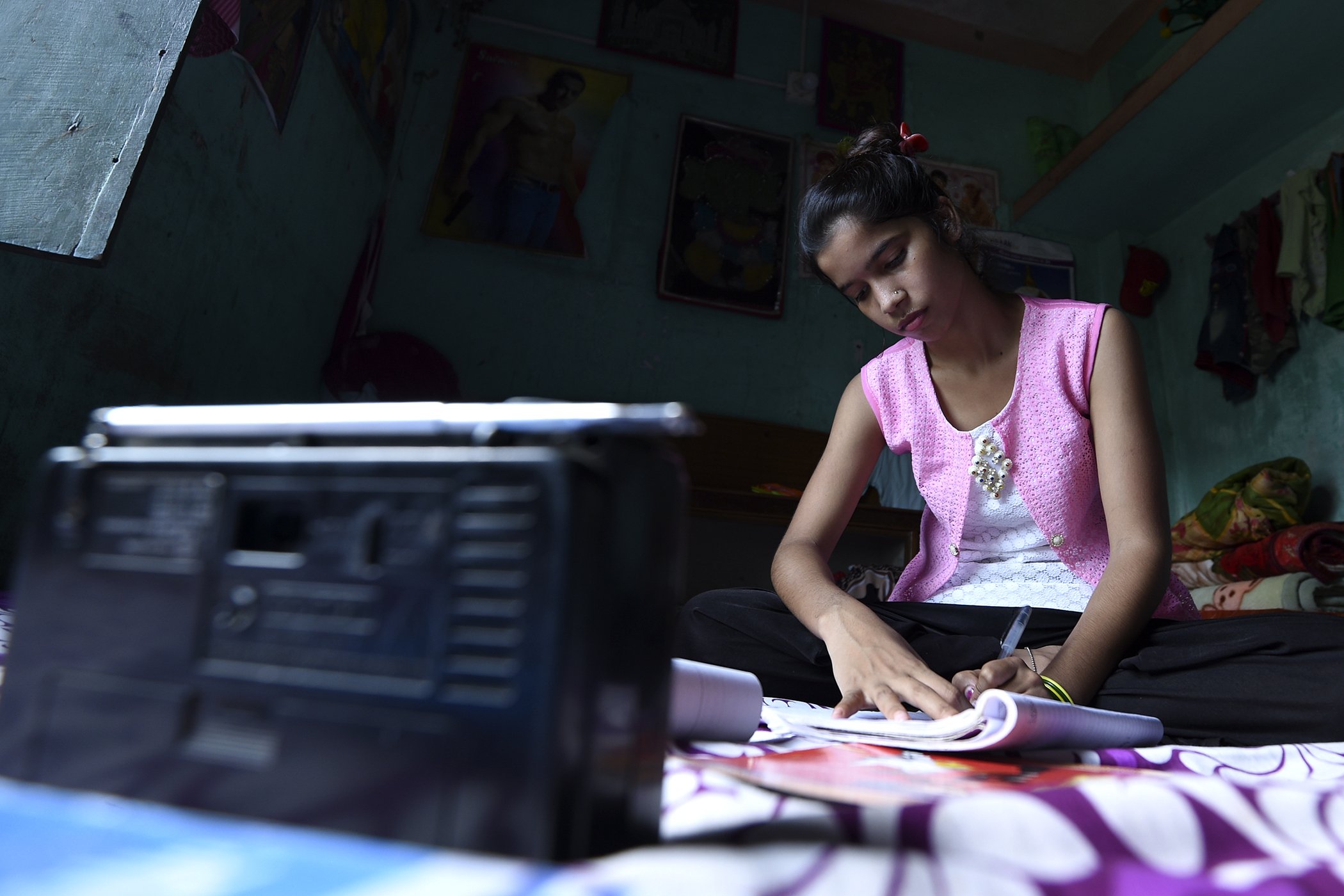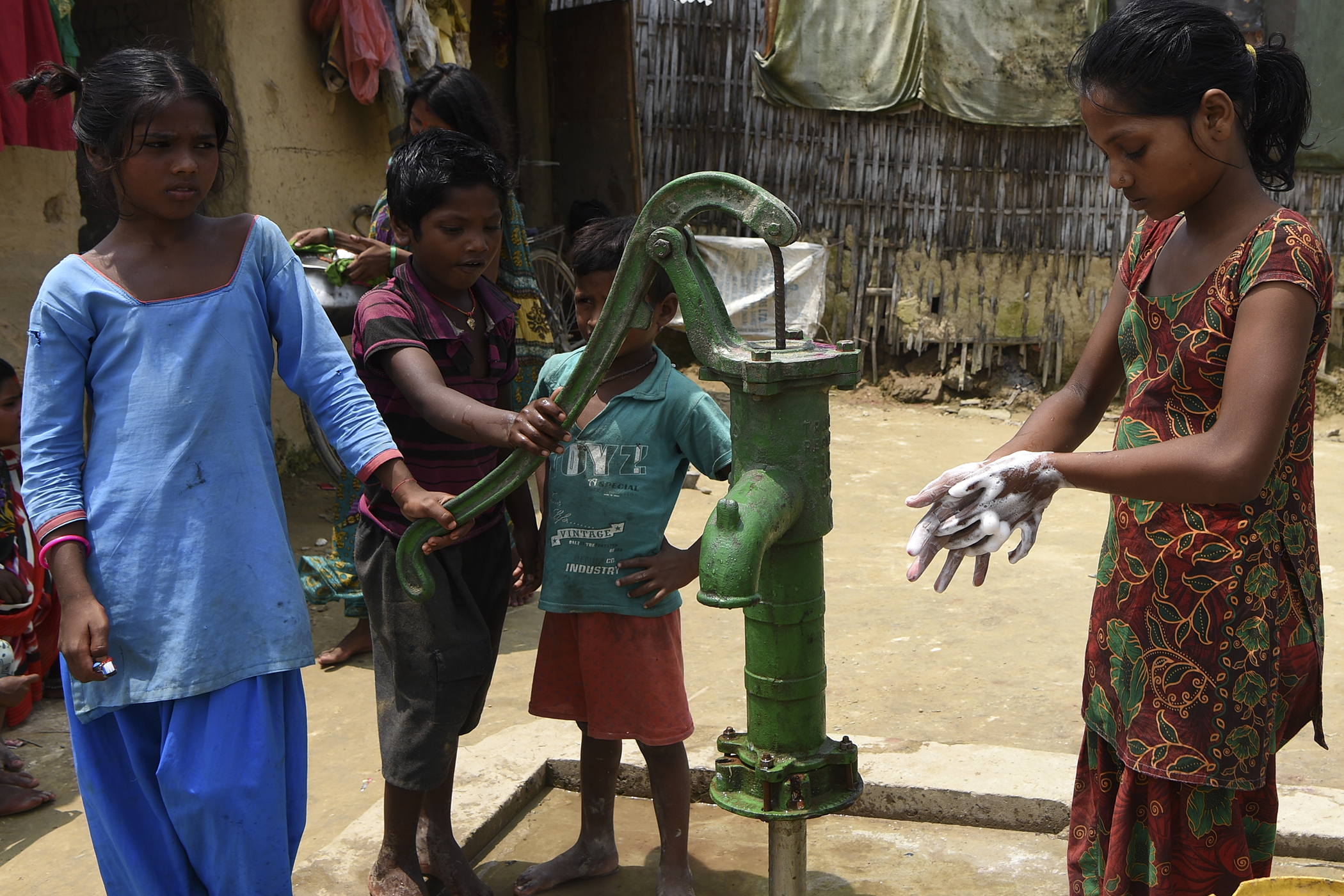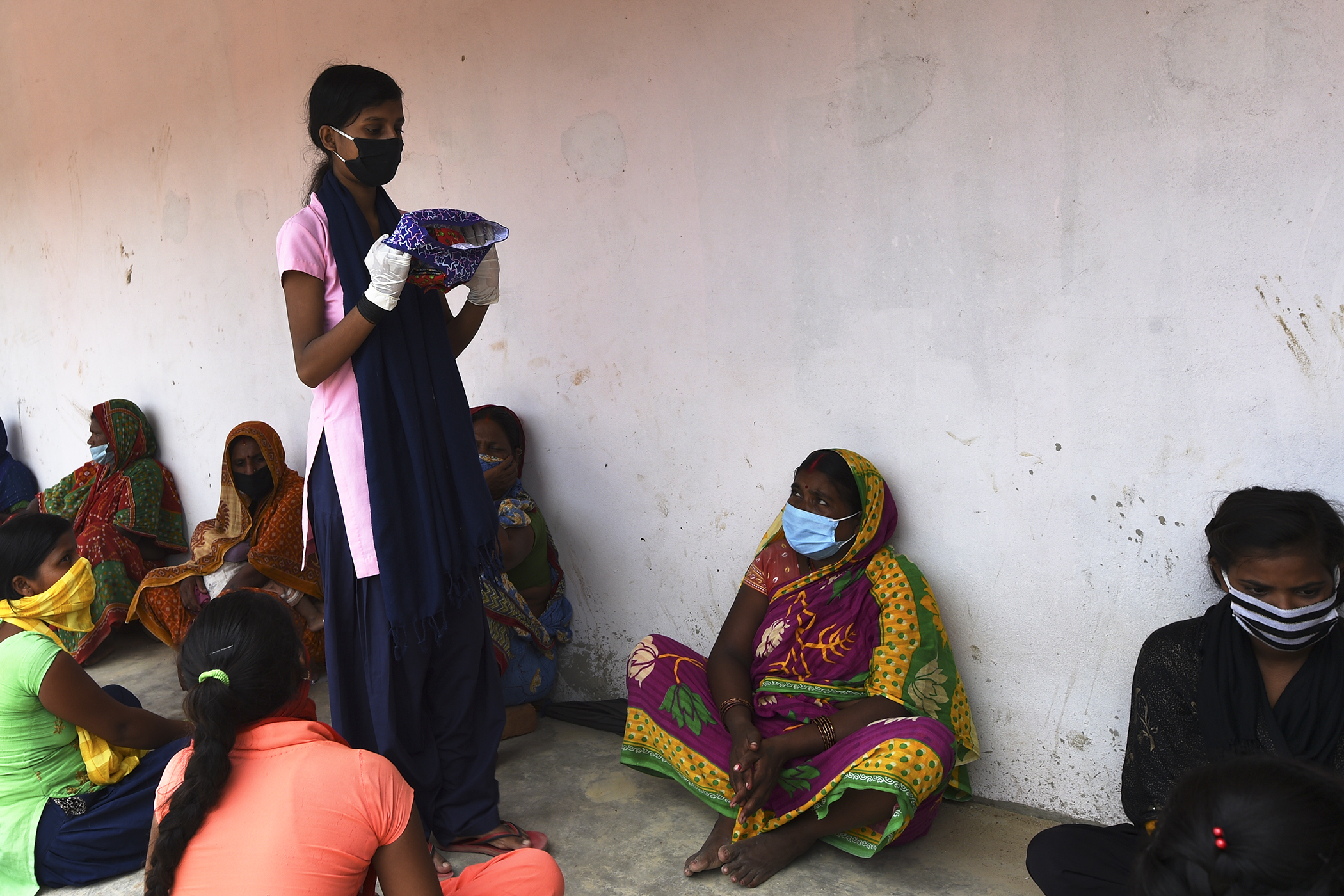Stigma surrounding menstruation in Nepal isn’t new. As part of the Hindu tradition "chhaupadi," women in the country have been subjected to harmful conditions in menstrual huts for centuries.
Now period poverty is on the rise in the wake of the COVID-19 pandemic, putting everyone from health care workers to young girls at risk.
The London-based organization Voluntary Service Overseas (VSO) is working to ensure that communities across Nepal have access to the information and resources they need to manage their periods and stay healthy during the crisis.
VSO’s Sisters for Sisters’ Education in Nepal Project connects young girls in four districts across the country with mentors who offer educational, health, and emotional support.
Joya Parvin, an 18-year-old Sisters for Sisters’ Education “Big Sister” mentor in Nepal’s Parsa district, is educating her mentees and their families about the importance of handwashing and managing their menstruation to prevent the spread of COVID-19.
 Big Sister Joya Pravin right providing girls in the community with the skill to make reusable sanitary pads from the resources available at home.
Big Sister Joya Pravin right providing girls in the community with the skill to make reusable sanitary pads from the resources available at home.
Big Sister Joya Pravin right providing girls in the community with the skill to make reusable sanitary pads from the resources available at home.
Many girls fear catching the virus due to lack of access to water, sanitation, and hygiene, Parvin said in a statement released to Global Citizen. Shoppers stocked up on period products when stores closed due to the pandemic and wiped out the shelves for people who could not afford to purchase supplies all at once, she explained.
Even though the government outlawed chhaupadi in 2005, the pandemic is also exacerbating taboos around menstruation in communities that honor the practice, according to VSO. Households are attempting to stay “clean” by forbidding menstruating girls from touching communal objects.
For students who rely on schools to access period products, few options are available with facilities shut down, according to 15-year-old Anjali Patel, a Sisters for Sisters’ Education mentee in the Parsa district.
 Little Sister Anjali patel listens to a radio program for her studies.
Little Sister Anjali patel listens to a radio program for her studies.
Little Sister Anjali patel listens to a radio program for her studies.
“During the lockdown, I was unable to buy sanitary pads,” Patel said in the statement. “When we were in school, we would get it there but during the lockdown, we were unable to go to school.”
Many girls in Nepal report that they miss school because they do not have the information or resources to manage their periods. The pandemic only added more barriers to girls’ education as it has caused an increase in household chores and child marriage. The Sisters for Sisters’ Education in Nepal Project is helping fill the gap.
“I can listen to the radio program that helps to improve my English learning,” Patel said. “Big Sister also visits my home and provide[s] support in some of my lessons.”
Before the pandemic, VSO trained 2,000 young women and girls to use reusable pads, which cost more upfront than disposables but can last up to five years, and are the more economical choice for many low-income communities when water and detergent are available.
The organization has since responded to the growing need for period products in the country and distributed menstrual hygiene kits to nearly 3,000 girls in July. Each kit includes soap, a towel, a toothbrush, a reusable sanitary pad, underwear, nail clippers, and liquid chlorine to help girls manage their periods safely and with dignity.


